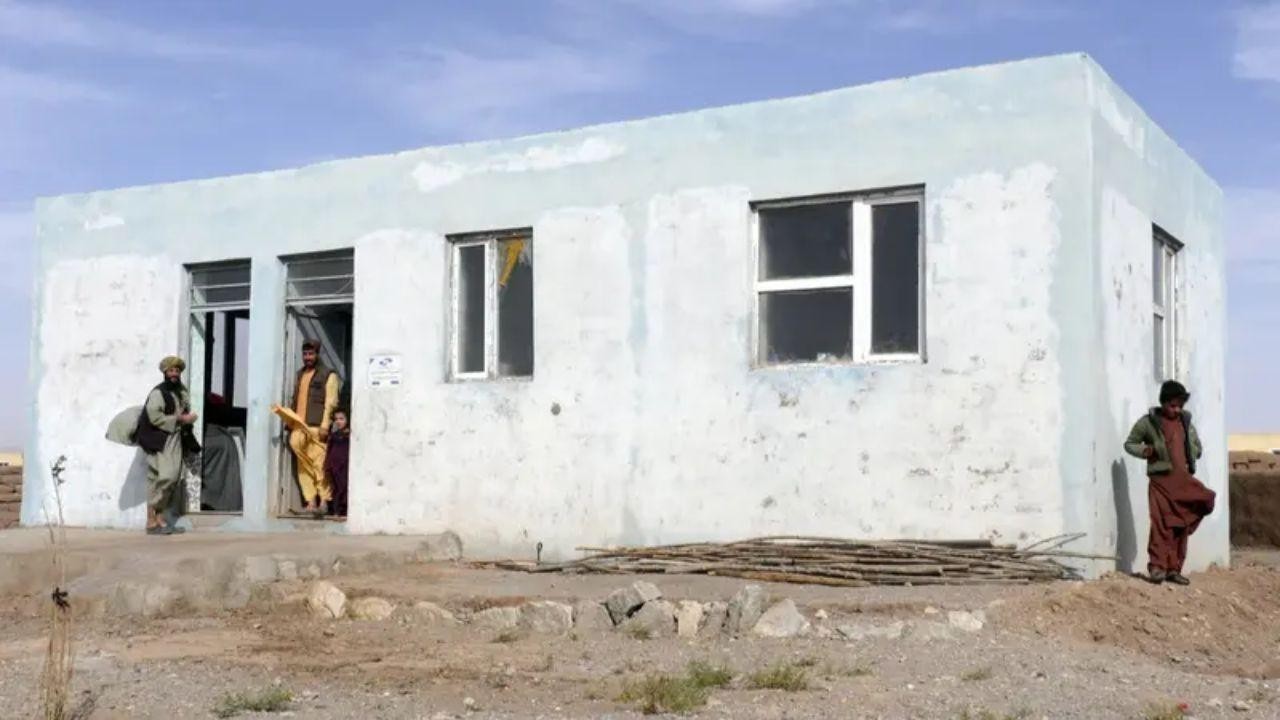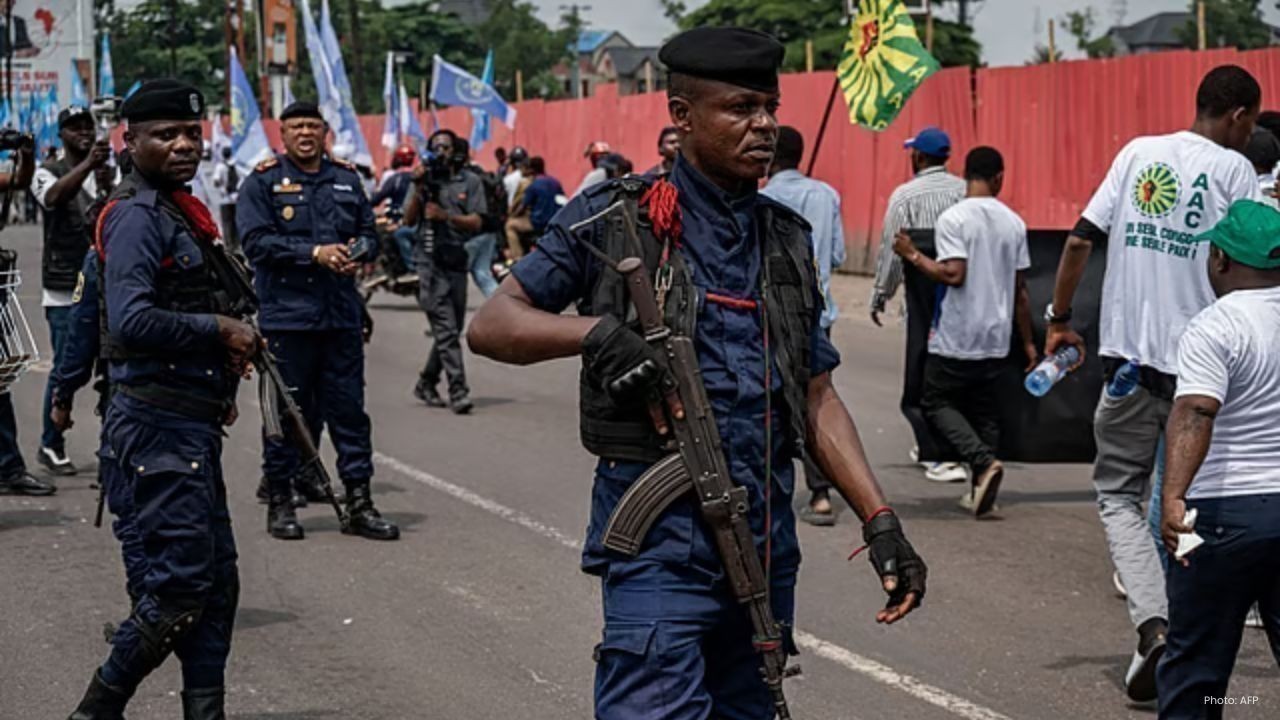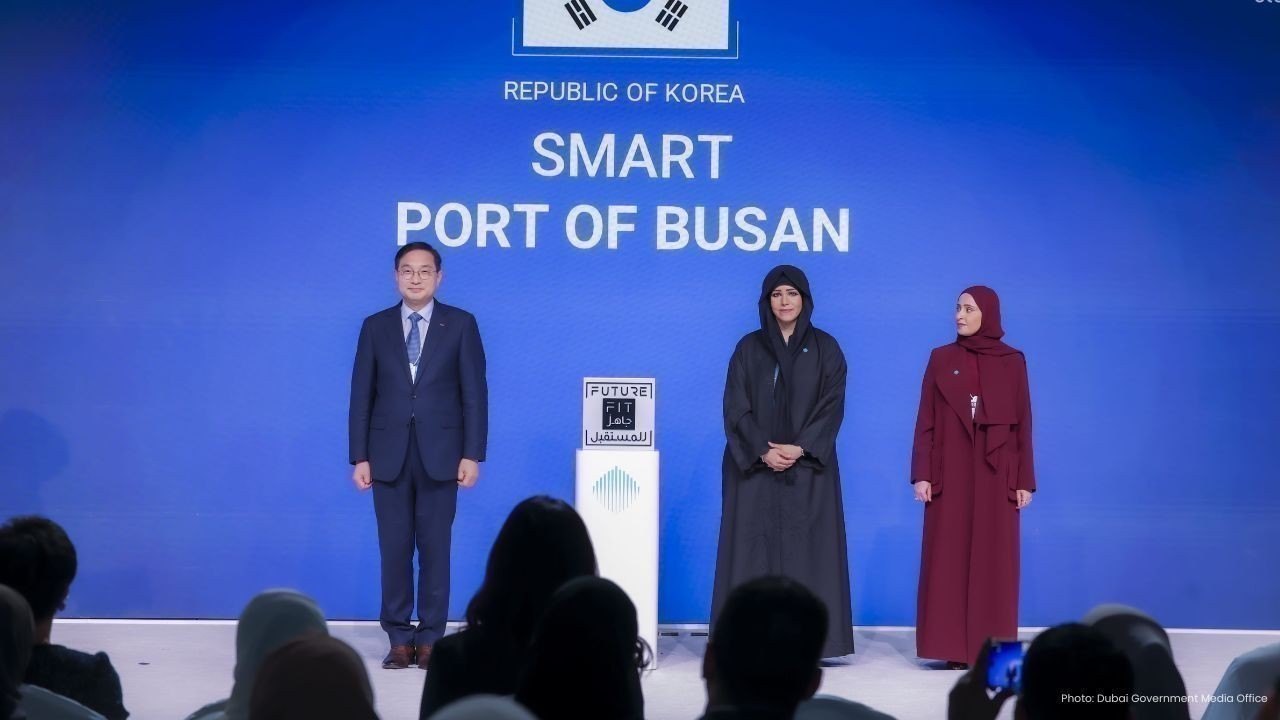
Post by : Zayd Kamal
Photo: AP
KABUL, Afghanistan — In the early moments of October 7, 2023, the ground shook violently in Herat province, unleashing a 6.3 magnitude earthquake that sent shockwaves of terror through the region. As the earth cracked open, families had mere seconds to escape their homes, with the devastating tremors reverberating through their lives. The scale of the disaster remains uncertain, with the Taliban government estimating at least 4,000 fatalities, while the United Nations reports around 1,500 deaths. Many survivors, exhausted from the frantic efforts to rescue loved ones or bury the dead, have stopped counting.
This earthquake stands as one of the deadliest natural disasters in Afghanistan's recent history and has presented a formidable challenge for the Taliban, who have governed the country since 2021. The disaster has tested their capacity to lead in a nation already burdened by economic strife, isolation, and the lingering scars of decades of conflict, all while remaining vulnerable to natural disasters and the effects of climate change.
In the immediate aftermath, local resident Ismatullah Rahmani described a moment of grim cooperation from the Taliban government. “At that time, the government really cooperated in transporting patients and the dead,” he recounted. Rahmani, who lost both his brother and nephew in the quake, spent hours digging through rubble to free his wife, who ultimately survived after being trapped under 1.5 meters of soil.
Stay informed with the latest news. Follow DXB News Network on WhatsApp Channel
During those first crucial days, the Taliban opened hospitals and provided food and water at no cost. “They went to camps and helped survivors over several months, a blessing ahead of the harsh Herat winter,” Rahmani said from his new home in Zinda Jan district, where every structure, typically made of mud and timber, was flattened.
However, as the weeks turned into months, the initial wave of aid dwindled. “After that, our aid stopped,” Rahmani noted, highlighting a growing reliance on charitable organizations for ongoing support. While NGOs stepped in to construct temporary housing, many of these structures lacked basic amenities. The makeshift accommodations often had no walls for privacy and were ill-equipped to withstand the harsh weather, with bathrooms that were sometimes roofless.
In Naib Rafi village, Rahmani lamented the absence of essential services like health clinics and schools, leaving children to learn in tents without proper facilities. “The government didn’t provide financial assistance,” he stated, noting that senior officials made sporadic visits, listened to grievances, but ultimately left without offering tangible support.
Ahmadullah Muttaqi, spokesperson for the Herat Earthquake Commission, acknowledged the ongoing challenges. He mentioned that authorities were collaborating with charities and NGOs to deliver shelter and medical aid. “People’s problems haven’t been solved, of course, but the first necessity is building houses until they stand on their own feet. They have been given food and hospitals are still working,” he said, adding that efforts to rebuild mosques, schools, and public spaces were underway.
Despite these initiatives, he did not address questions regarding the government’s preparedness for future disasters. The ongoing crisis in Afghanistan was compounded by dwindling foreign aid. Long before the earthquake, Afghans were grappling with displacement, food insecurity, and poverty, and the disaster further strained an already fragile public service system. Aid organizations, which had been providing critical support to healthcare and education, found their resources stretched thinner than ever.
The International Rescue Committee (IRC) set up feeding corners in the aftermath of the quake, aiming to provide safe spaces for mothers to breastfeed while receiving nutritional counseling. They also repaired water systems and distributed emergency cash, hygiene kits, and mental health support to thousands. However, the IRC emphasized that such aid is finite, especially in a world facing multiple crises that divert attention and resources.
International funding for Afghanistan has fallen short, receiving less than a third of its target amid changing political landscapes and global conflicts. Widespread opposition to the Taliban's policies regarding women and girls has further complicated the situation. Mark Calder from World Vision International remarked, “There is donor fatigue, for sure, but perhaps the bigger problem is a nervousness from many donors about supporting anything but the most urgent life-saving aid.”
Amid these challenges, fears of future disasters loom large. The local authorities in Herat have struggled to meet the humanitarian needs of the population, and damaged infrastructure has hindered recovery efforts. The reliance on aid organizations for basic necessities like healthcare and shelter has left communities vulnerable.
Gul Ahmad Osmani, who lost four of his children in the quake, vividly recalled the horror of hearing screams from beneath the rubble. “It was impossible to pull them out,” he said, his grief palpable. His surviving family spent the harsh winter living in a tent. “The government took care of us, keeping my wife and children in a camp, but we didn’t see anything from the government that was specifically from them, like flour, cooking oil, or rice. Our own people brought food for several days.”
Although aid had initially flooded in from across the country, it has now been nearly six months since any NGOs or well-wishers visited the residents of Zinda Jan. Recently, a kind doctor from Baghlan province donated some funds, but Osmani expressed concern over the continued risks. “There are still earthquakes, and these new houses are heavy. Children are afraid. The help for the earthquake did not help us,” he lamented.
As winter approaches once more, the outlook remains grim for those still grappling with the aftermath of this disaster, highlighting the urgent need for sustained support and a comprehensive recovery strategy that addresses both immediate needs and long-term resilience against future calamities.

UN Mission to Monitor Ceasefire in Eastern DR Congo: Qatar
Qatar says the UN will send a mission to eastern DR Congo to monitor a permanent ceasefire after rep

Sheikha Latifa Honours 3 Global Projects with Future Fit Seal
At WGS 2026, Sheikha Latifa awarded the Global Future Fit Seal to Albania, Korea and Singapore proje

Winter Skin Care: 10 Hydrating Drinks That Give Natural Glass Skin Glow
Learn how simple winter drinks keep your skin hydrated reduce dryness and support a natural glass sk

10 Songs That Carry the Same Grit and Realness as Banda Kaam Ka by Chaar Diwari
From underground hip hop to introspective rap here are ten songs that carry the same gritty realisti

PPG and JAFZA Launch Major Tree-Planting Drive for Sustainability
PPG teams up with JAFZA to plant 500 native trees, enhancing green spaces, biodiversity, and air qua

Dubai Welcomes Russia’s Largest Plastic Surgery Team
Russia’s largest plastic surgery team launches a new hub at Fayy Health, bringing world-class aesthe

The Art of Negotiation
Negotiation is more than deal making. It is a life skill that shapes business success leadership dec

Winter Skin Care: 10 Hydrating Drinks That Give Natural Glass Skin Glow
Learn how simple winter drinks keep your skin hydrated reduce dryness and support a natural glass sk

Why Drinking Soaked Chia Seeds Water With Lemon and Honey Before Breakfast Matters
Drinking soaked chia seeds water with lemon and honey before breakfast may support digestion hydrati

Morning Walk vs Evening Walk: Which Helps You Lose More Weight?
Morning or evening walk Learn how both help with weight loss and which walking time suits your body

What Really Happens When You Drink Lemon Turmeric Water Daily
Discover what happens to your body when you drink lemon turmeric water daily including digestion imm

DXB News Network Presents “Ctrl+Alt+Wim”, A Bold New Satirical Series Starring Global Entertainer Wim Hoste
DXB News Network premieres Ctrl+Alt+Wim, a bold new satirical micro‑series starring global entertain

High Heart Rate? 10 Common Causes and 10 Natural Ways to Lower It
Learn why heart rate rises and how to lower it naturally with simple habits healthy food calm routin

10 Simple Natural Remedies That Bring Out Your Skin’s Natural Glow
Discover simple natural remedies for glowing skin Easy daily habits clean care and healthy living ti

Mattel Revamps Masters of the Universe Action Figures for Upcoming Film
Mattel is set to revive Masters of the Universe action figures in sync with their new movie, ignitin